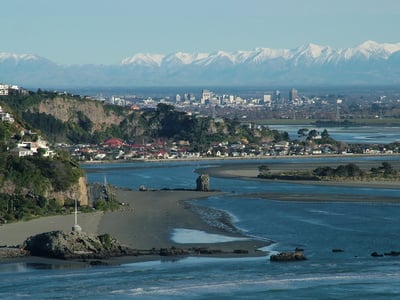Scientists at the New Zealand Coastal Society conference have drawn attention to the need for coastal homeowners to take greater responsibility for the risks faced by their property, as these areas are more vulnerable to climate change and natural hazards.

Like Christchurch above, the majority of New Zealand's cities lie near coasts and rivers © msw - Fotolia.com
Their warning comes as demand for coastal property grows, but as the society pointed out, the recent Christchurch earthquake has highlighted the vulnerability of these regions, and has also called into question the effectiveness of coastal planning systems. There is no doubt it is a real challenge trying to make these areas more resistant to disaster, especially as the majority of New Zealand's cities are situated on rivers or the coast. The aftermath of the earthquake saw many properties lose access to drinking water, while raw sewage contaminated many beaches, and more than one year on these effects are still being felt.
People wishing to live in coastal areas are advised to seek professional advice, and to be aware of the effects of climate change and possible rises in sea levels as well as the effects of natural hazards such as earthquakes which is quite a lot to take on board. Experts have pointed out that 65% of New Zealand’s major infrastructure and communities are within 5 km of the sea, and 12 out of the 15 largest towns and cities are situated on the coast, with Wellington being a prime example as its central business district and airports are all close to the sea.
The demand for coastal homes has seen an unprecedented rise in development of these areas, increasing the risk of coastal erosion, and councils are now being urged to plan ahead for possible climate changes.